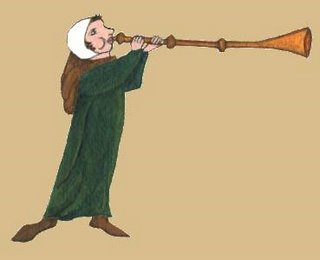
Today's event from tudor history is inspired by a recent article by Simon Davis in that well known historical journal, the London Evening Standard.
Entitled "Advice to all buskers - drop Hawaii Five-O from the repertoire", Davis gives an interesting history of the practice.
Cardinal Wolsey could not find an online version of the article to link to, so will attempt to paraphrase so as not to court trouble with the powerful interests of Associated Newspapers...
According to Davis, the word busking may derive from the Italian buscare, "to procure or gain". Alternatively in Spanish buscar means " to seek" (eg money), but it has another meaning "to wander", as in minstrels and troubadours (Latin tubare = to disturb, as is the case when a mistrel enters your tube carriage).
Davis goes further back to buskin, the knee-high boots worn by actors in Greek and Roman tragedy - he makes a slightly tenuous link to the thick-soled boots favoured by modern travelling buskers, especially those with dogs on strings leads.
The earliest mention of street performance in the West was probably in Roman legislation in AD 451, prohibiting singing of libelli famos ( satirical anti-regime songs), with death as the reasonable punishment.
Henry VIII was a little more reasonable, with only two days of whipping for unlicensed beggars, pardoners, fortune-tellers, fencers, minstrels and players.
22 August, 2006
Henry VIII orders licensing of "beggars, pardoners, fortune-tellers, fencers, minstrels and players", 1530
Subscribe to:
Post Comments (Atom)

No comments:
Post a Comment